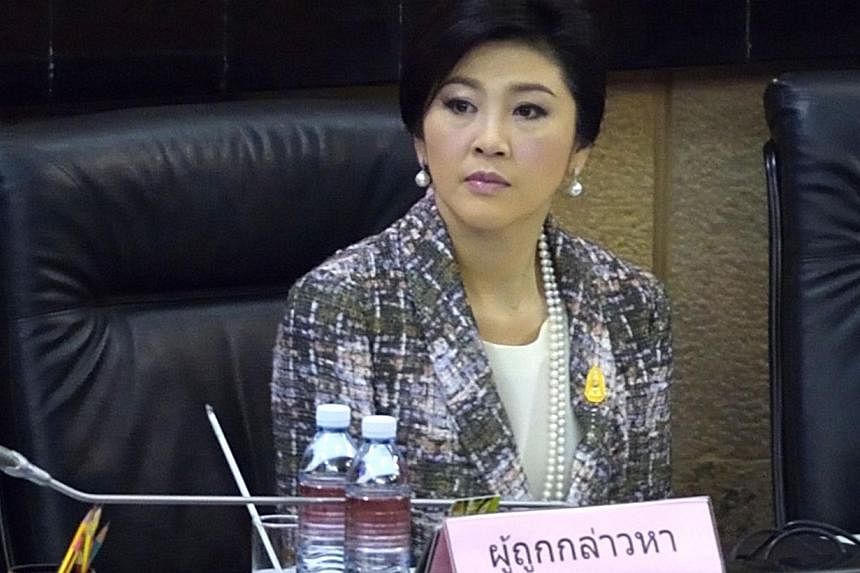FORMER Thai prime minister Yingluck Shinawatra vowed on Friday to "fight until the end" criminal charges for negligence over a costly rice subsidy scheme, hours after she was impeached over the same offence and banned from politics for five years.
"Thai democracy has died along with the rule of law," Ms Yingluck, whose administration was ousted by the military in a coup last May, said in a statement posted on her Facebook page. "I will fight until the end to prove my innocence, no matter what the outcome will be.
"And most importantly, I want to stand alongside the Thai people. Together we must bring Thailand prosperity, bring back democracy and truly build justice in Thai society," she added.
There was no sign of unrest on Bangkok's streets on Friday, as residents adhered to the junta's ban on political gatherings.
The 220-member, military-stacked interim assembly had voted overwhelmingly to impeach Ms Yingluck for dereliction of duty for failing to stop a controversial rice subsidy scheme administered by her government, further dimming chances of reconciliation in the politically riven country.
Thailand's Attorney-General office announced hours before the impeachment vote that it planned to bring charges against her, mirroring the actions taken against her brother, former premier Thaksin Shinawatra, more than six years ago. Ms Yingluck faces up to 10 years' jail if convicted in the Supreme Court's Criminal Division for Holders of Political Positions.
Ms Yingluck was ousted by Thailand's Constitutional Court two weeks before a military coup threw out the rest of her caretaker Cabinet on May 22 last year. For some seven months prior to her ouster, anti-government protesters supported by royalist elites and urban middle class rallied to throw her out of office.
The case in question relates to a rice-pledging scheme implemented by her Puea Thai party, which allowed farmers to sell rice to the government at some 50 per cent over market price. It is estimated to have cost more than 500 billion baht (S$20.5 billion), and led to overflowing rice stockpiles.
The rice scheme was a key campaign pledge of Puea Thai, which draws most of its support from the rural masses in Thailand's populous north-east.
Ms Yingluck, who came to power in the 2011 elections, was seen as the proxy of her brother Thaksin, who himself was ousted by a coup in 2006 and lives in self-exile abroad to avoid a jail sentence.
In 2008, he was convicted in absentia for conflict of interest over a land sale deal, a case he insists is politically motivated.
Although protests have been scant under the firm grip of martial law and a military-controlled administration and legislature, observers and critics warn that the latest impeachment and coming criminal charge against Ms Yingluck will deepen the political conflict that has gripped Thailand for almost a decade.
Mr Weng Tojirakarn, one of the leaders of the "red-shirt" movement that is allied with the Puea Thai, said: "They are increasing the intensity of the hatred and extending the boundary of the hatred.
"Something not so good will happen in the future."


